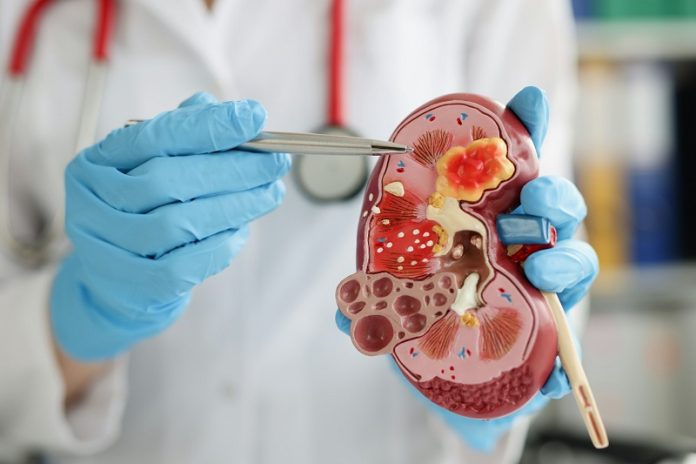
A new study has found that older adults who experience acute kidney injury (AKI) may have a higher risk of developing dementia.
The research, published in the journal Neurology and conducted by scientists from Karolinska Institutet and others, sheds light on how a sudden decline in kidney function can have serious effects on brain health.
Acute kidney injury, or AKI, happens when the kidneys suddenly stop working as well as they should.
This condition is fairly common among older people and can lead to other health problems, increasing the risk of illness and even death.
While previous studies hinted at a connection between AKI and brain damage, this new research takes a closer look at how AKI might specifically be linked to different types of dementia.
The researchers analyzed health data from more than 300,000 people aged 65 and older, who were part of a project called the Stockholm CREAtinine Measurement (SCREAM).
Over an average follow-up period of 12 years, about one in four participants had at least one episode of AKI. During this time, 16% of the people studied were diagnosed with dementia.
The study found that those who had AKI were 49% more likely to develop any form of dementia compared to those who didn’t experience AKI.
When the researchers looked at specific types of dementia, they discovered that people with AKI were 88% more likely to develop Lewy body dementia or dementia related to Parkinson’s disease, 47% more likely to develop vascular dementia, and 31% more likely to develop Alzheimer’s disease.
The risk was even higher for those who had severe kidney damage that required hospitalization.
“Our findings suggest that AKI is not just an isolated event affecting kidney function but may have broader implications, particularly for brain health,” says Hong Xu, the study’s lead author and an assistant professor at Karolinska Institutet.
Identifying AKI as a risk factor for dementia could lead to earlier interventions and better care for patients. According to Juan Jesus Carrero, a professor at Karolinska Institutet and senior author of the study, this research opens the door to finding new ways to prevent dementia in people who suffer from AKI.
The researchers plan to continue studying the biological connections between AKI and dementia. They will also explore whether certain medications, lifestyle changes, and careful monitoring after AKI can help reduce the risk of developing dementia.
If you care about dementia, please read studies that eating apples and tea could keep dementia at bay, and Olive oil: a daily dose for better brain health.
For more health information, please see recent studies what you eat together may affect your dementia risk, and time-restricted eating: a simple way to fight aging and cancer.



